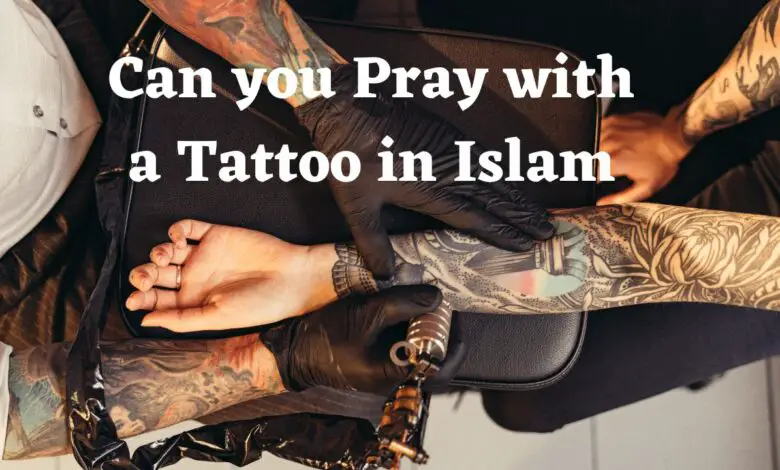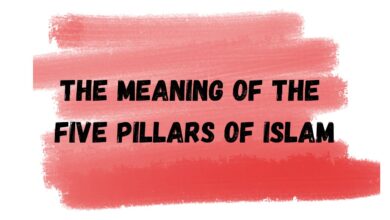Can you Pray with a Tattoo in Islam
Exploring the Permissibility of Tattoos in Islamic Prayers

Introduction
Islam is a religion that emphasizes the significance of purity and cleanliness during acts of worship, including prayer. The topic of tattoos in Islam has been a subject of discussion, as many Muslims wonder whether having a tattoo affects the validity of their prayers. In this article, we will explore the Islamic perspective on tattoos and whether praying with a tattoo is acceptable.
Understanding of Can you Pray with a Tattoo in Islam
Tattoos, known as “al-washm” in Arabic, have a long history and cultural significance in various societies. In Islam, however, the stance on tattoos has been a matter of scholarly debate. The primary concern related to tattoos in Islam revolves around the concept of altering the creation of Allah and modifying one’s body, which some consider impermissible.
Prohibition of Permanent Tattoos
Most Islamic scholars agree that permanent tattoos are not allowed in Islam. The prohibition stems from the Prophet Muhammad’s (peace be upon him) reported statements, which discourage altering one’s body through permanent means. Narrated in Sahih Bukhari and Sahih Muslim, the Prophet explicitly condemned those who got tattoos and those who performed tattooing.
The Messenger of Allah (peace be upon him) said: “May Allah curse the women who do tattoos and those who get themselves tattooed, and those who remove their face hairs, and those who create a space between their teeth artificially to look beautiful, and such women as change the features created by Allah.” – Sahih Bukhari
However, it is crucial to note that the above prohibition refers specifically to permanent tattoos. Temporary and non-permanent tattoos, such as henna (a plant-based dye used to create temporary designs), do not fall under the same ruling.
Praying with a Tattoo
As mentioned earlier, the main concern with tattoos is related to their permanence. If someone has a permanent tattoo, it does not invalidate their prayer, as long as they perform their ablution (wudu) correctly and fulfill other prayer requirements. Prayer is considered an essential pillar of Islam, and it should not be neglected due to a tattoo.
Wudu and Tattoos
A proper ablution (wudu) is a prerequisite for performing the Islamic prayers. During wudu, a Muslim cleanses specific body parts, such as the hands, face, and feet, to attain a state of ritual purity. Having a tattoo does not interfere with this process, as the water used during wudu reaches the skin beneath the tattoo.
Spiritual Intent and Repentance
While a permanent tattoo may not invalidate prayer, it is essential for Muslims to approach the issue with sincerity and understanding. If an individual gets a tattoo before becoming aware of its prohibition in Islam, their prayers are still valid, but they should seek repentance from Allah for this act.
Moving Forward
For those who wish to embrace Islam’s teachings more profoundly, repentance and seeking forgiveness are vital steps. Repentance involves acknowledging the mistake, feeling remorseful, and making a firm commitment not to repeat it. Allah, the Most Merciful, accepts the sincere repentance of His servants.
Conclusion
In conclusion, the issue of praying with a tattoo in Islam remains a subject of differing opinions among scholars. While some consider tattoos to be discouraged or forbidden due to historical Hadiths, others argue that they may be permissible as long as they do not contain offensive content. However, irrespective of these viewpoints, it is widely agreed upon that tattoos, if visible, should be covered during prayers as an act of respect and modesty. As with any religious matter, individuals should consult knowledgeable scholars and seek guidance from Allah to make informed decisions in accordance with their faith.
Can You pray with tattoo in islam?
Regardless of the permissibility of tattoos, it is widely agreed upon that any visible tattoos should be covered during the act of prayer. This practice aligns with the concept of modesty and respect during Salah.
Is it permissible to have a tattoo as a Muslim?
Islamic scholars hold differing opinions on tattoos. Some consider them discouraged or even forbidden due to specific Hadiths, while others believe they may be permissible if they don’t contain offensive content. It is essential to seek guidance from knowledgeable scholars before making a decision.
What if I already have a tattoo, can I still pray?
Having a tattoo does not invalidate your prayers. Islam encourages repentance and seeking forgiveness from Allah. If you have a tattoo and are concerned, turn to Allah in sincere repentance, seeking His forgiveness and avoiding repeating the action.
Are temporary tattoos permissible in Islam?
Temporary tattoos are generally considered permissible in Islam since they do not involve permanently altering the body. However, it is still recommended to avoid any offensive or inappropriate content.
Can women with tattoos perform the ablution (wudu) for prayer?
Having a tattoo does not affect the validity of ablution (wudu) in Islam. As long as the tattooed area is washed correctly during ablution, the prayer remains valid.
Are there any exceptions for medical or cultural tattoos?
Medical tattoos, such as those for identification or treatment purposes, are generally permissible in Islam. Cultural tattoos with no religious implications may also be considered differently. However, it is best to seek counsel from a knowledgeable Islamic scholar for specific cases.
Do tattoos affect the acceptance of prayers by Allah?
The acceptance of prayers depends on the sincerity, devotion, and faith of the individual, not on the presence of tattoos. Allah looks into the heart and intentions of His worshipers, so prayer’s acceptance is not affected by tattoos.
Can a tattoo be covered temporarily for prayer?
Yes, temporary coverage of tattoos for prayer is acceptable. Muslims can use clothing or items like bandages to conceal visible tattoos while performing Salah.
Is there any religious significance to tattoos in Islam?
Tattoos do not hold any religious significance in Islam itself. They are primarily a cultural and personal expression that has gained popularity in various societies.
How should I handle judgment from others about my tattoos while praying?
Remember that only Allah can judge your heart and faith. Ignore any negative judgment from others and focus on your relationship with Allah. Seek knowledge about your faith to be confident in your beliefs.





